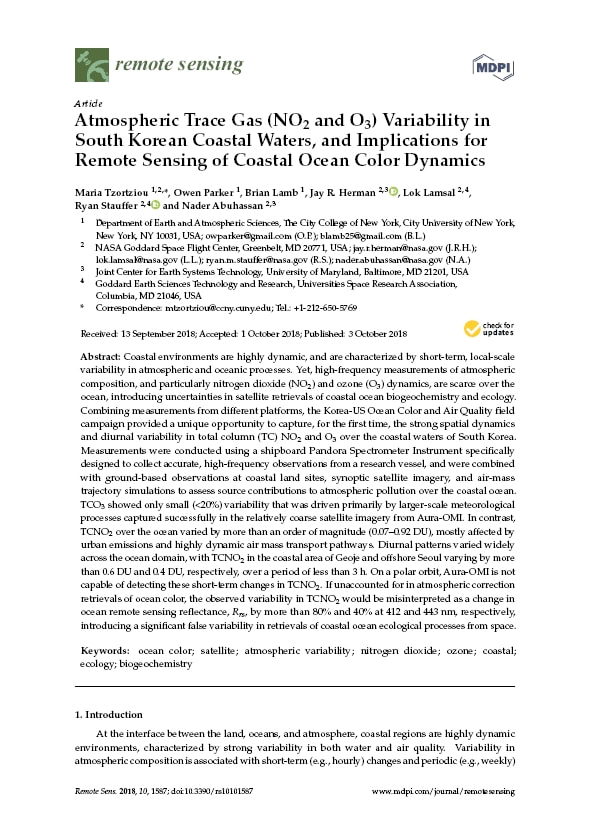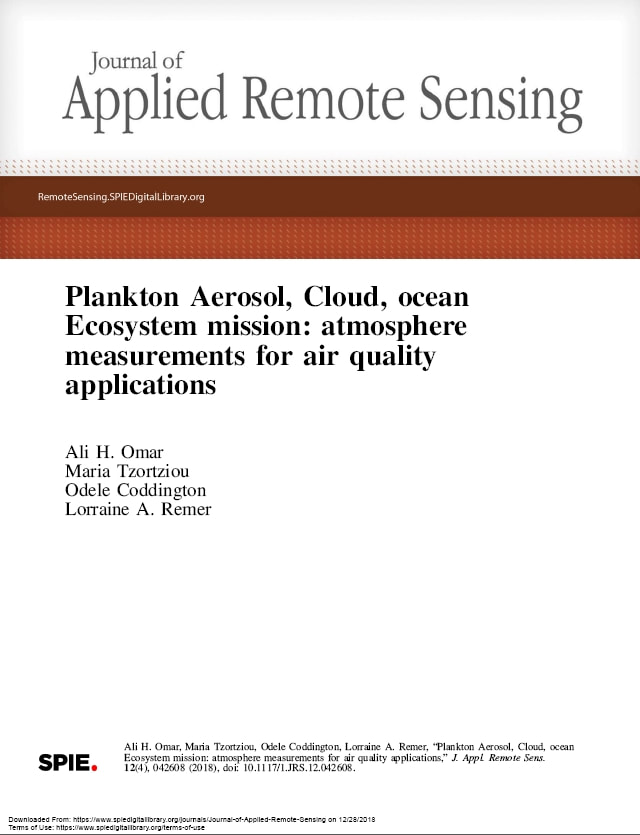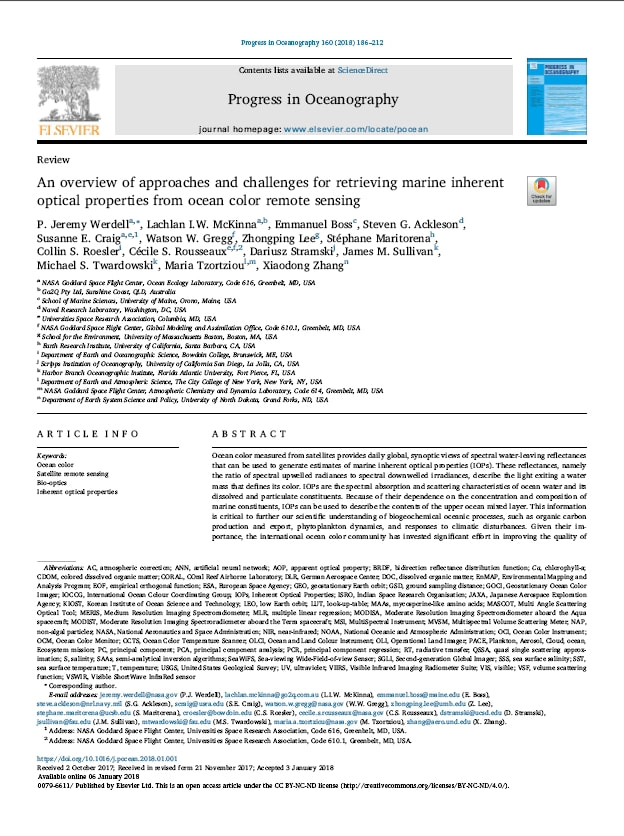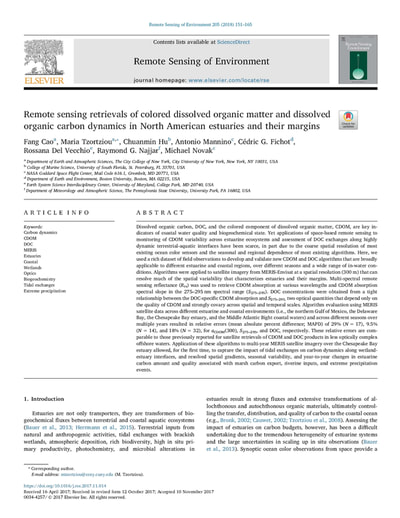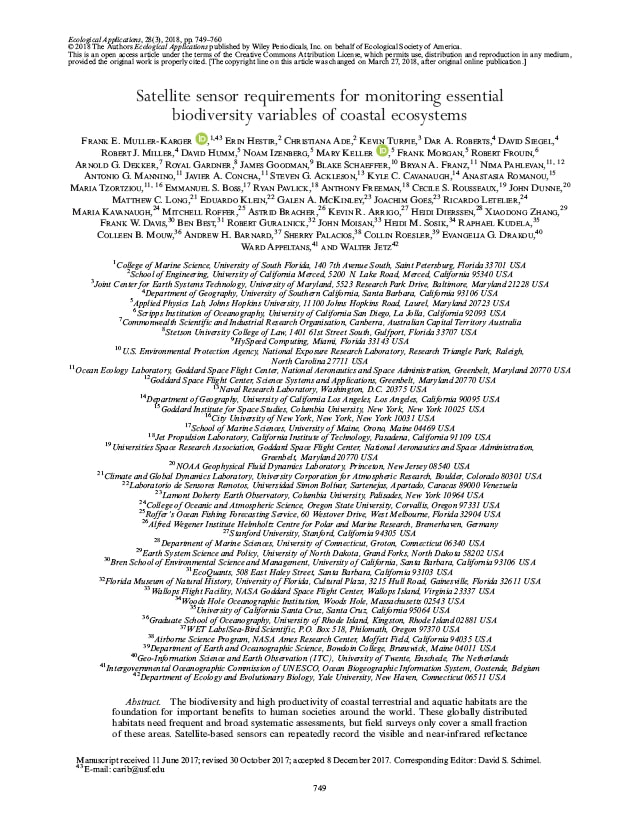Dr. Maria Tzortziou
Professor
|
Dr. Tzortziou's research integrates multidisciplinary datasets, satellite remote sensing observations, and ecosystem models to provide mechanistic insights into the impacts of human and environmental pressures on biogeochemical cycles and ecological processes along the continuum of terrestrial, wetland, estuarine, and open ocean ecosystems. Her research has taken her from the Gulf of Mexico and the Chesapeake Bay wetlands to the Yukon River delta in Alaska and the Arctic coastal ocean, from urbanized coastlines in the Mediterranean and Europe's trans-boundary watersheds to the Asian coastal megacities of Seoul and Busan, to the Hindu-Kush Himalayan river basins.
Dr. Tzortziou is on the Science Steering Committee for the Ocean Carbon Biogeochemistry Program, on the Science Leadership Board of the North American Carbon Program, and member of the Arctic Research Consortium of the United States (ARCUS). She has served on the Steering Committee and Writing Team for the 2017-2027 NASA Ocean Biology & Biogeochemistry Program Advanced Science Plan, and she was Invited Chapter Author for the Second State of the Carbon Cycle Report (SOCCR-2). Tzortziou is Science Team Member for NASA's Earth Venture Instrument (EVI) Mission GLIMR (Geostationary Littoral Imaging and Monitoring Radiometer), the Deputy Program Applications Lead for NASA's upcoming satellite mission PACE (Plankton, Aerosol, Cloud, ocean Ecosystem), Associate Editor for Biogeosciences, and member of the 2014-2017 NASA PACE Science Team. |
Recent Publications



